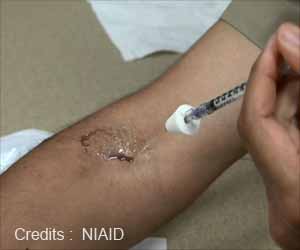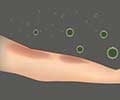Understanding the factors that modulate immune cells in healthy and diseased skin is key to develop new effective treatments for atopic dermatitis and psoriasis.

‘Atopic dermatitis and psoriasis are itchy skin conditions characterized by the presence of immune cells in the skin.’





As a part of understanding these skin conditions, Singapore Immunology Network collaborated with researchers at Skin Research Institute of Singapore (SRIS) and used single-cell flow cytometry and single-cell RNA sequencing (RNA-seq) approach to analyze immune cells in the human skin.This combination of complex approaches generated an unbiased profile/landscape of immune cells mainly T cells in the skin - described their distinct molecular signatures and proportions in skin lesions of AD and PSO patients.
This uncovered fact that T cell-mediated immune dysregulation is central to the pathogenesis of chronic inflammatory skin diseases such as atopic dermatitis (AD), and psoriasis (PSO).
This study finding suggests that targeting these immune cells might represent a novel therapeutic option in the treatment of PSO, and demonstrates the potential for the single-cell myeloid cell landscape database to provide important insights into skin biology in health and disease.
The role of immune cells in the development of inflammatory skin diseases remained unclear till now but this study revealed the functions of each T cell subset are very informative and valuable to understand the pathogenesis of atopic dermatitis and psoriasis.
Advertisement
Source-Medindia















